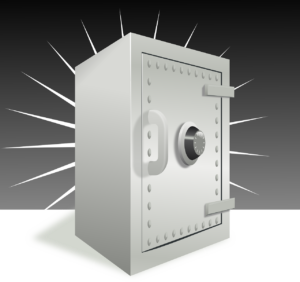 How to Safeguard Your Personal Information from Debt Collectors
How to Safeguard Your Personal Information from Debt Collectors
When you’re dealing with debt collectors, you want to be careful about what information you share. It’s important to protect your privacy with debt collectors who may reach out to you.
Some collectors are legitimate, following the law. Others may be aggressive, careless, or even outright scammers. Either way, the wrong information in the wrong hands can lead to harassment, identity theft, or further financial trouble.
As a bankruptcy lawyer, I’ve seen how quickly things can spiral when someone unknowingly gives a collector too much personal information. Here’s how you can protect yourself while still handling your debts responsibly.
Confirm Who You’re Talking To
Before you answer a single question, make sure the collector is legitimate. Ask for:
- The collector’s full name
- The company name and mailing address
- The original creditor’s name
- The amount they claim you owe
You can even ask for their supervisor’s name for verification if you feel comfortable.
If they’re operating legally, they should be able to give you this information.
By law, they should also send you a written debt validation notice within five days of first contacting you. If they refuse, that’s a red flag.
 Limit What You Share Over the Phone
Limit What You Share Over the Phone
You have every right and reason to care about your privacy with debt collectors. If a creditor asks you for information on your end, be extremely cautious. They should have all the information about your debt already.
You are not required to give out your:
- Social Security number (especially not the full number)
- Bank account numbers
- Debit or credit card information
- Employer’s direct contact info
If you decide to make a payment, do it through a safe, trackable method. Pay online through a trusted website or call the company back yourself. And never give out a routing number or debit card over the phone to an unverified collector.
Request Written Communication
You also have the right to ask a debt collector to communicate with you only in writing. This reduces the risk of giving out sensitive details in a rushed or stressful phone call, and it creates a paper trail for your records.
Watch for Red Flags of a Scam
Some “collectors” are really scammers looking to steal your identity or money. Be cautious if the caller:
- Demands payment immediately over the phone
- Refuses to send written proof of the debt
- Uses threats or intimidation
- Can’t or won’t verify who they are
If anything feels off, hang up and contact the original creditor. See if you even owe a debt at all and what your options might be.
 Use Bankruptcy or Legal Help to Stop the Calls
Use Bankruptcy or Legal Help to Stop the Calls
If the calls are constant or you’re being pressured to share private details, it might be time to get help. Fortunately, bankruptcy is a tool that might be right for your situation.
When I help a client file for bankruptcy, an automatic stay goes into effect, which legally requires all debt collection calls to stop immediately. From there, I handle all communication with collectors so you don’t have to.
The Bottom Line on Privacy with Debt Collectors
You have a right to privacy, even if you owe money. By staying cautious, verifying who you’re speaking with, and limiting what you share, you can protect yourself from harassment, scams, and identity theft.
If you’re tired of the calls and want real protection, talk to a bankruptcy lawyer about your options. Our firm is available anytime. Contact us today online or call us at 901-327-2100.
We can help you protect your privacy with debt collectors and get a fresh start today.
